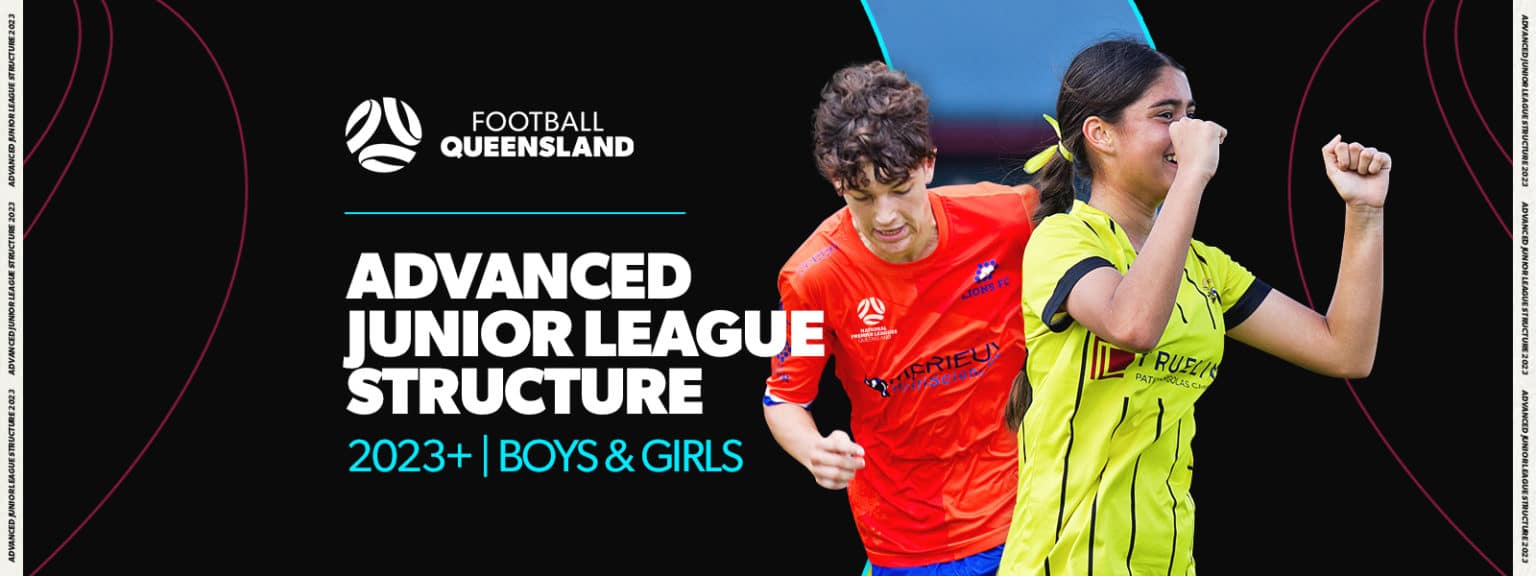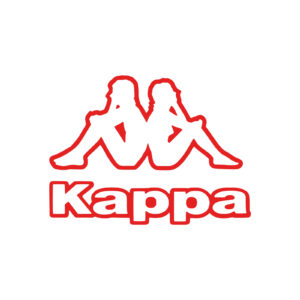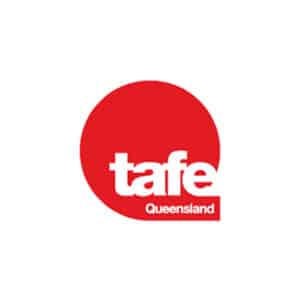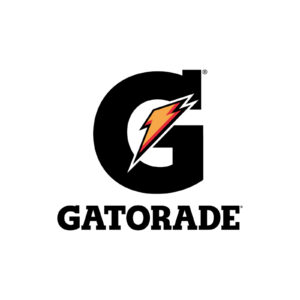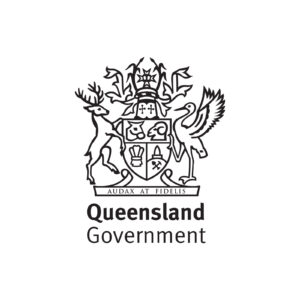Football Queensland has today confirmed the advanced league junior structures for 2023 as part of the implementation of the remaining elements of the planned competition and technical reforms.
The implementation of the final reforms for advanced clubs aligns with the conclusion of the current five-year licence period, and the introduction of a new annual licence agreement and process.
“The final elements of Football Queensland’s competition reforms include amendments to the nomenclature for the entire junior advanced pyramid to a more streamlined and aligned position, the transition to a new playing format for the U13 cohort to deliver more games and match minutes, associated league composition changes and other operational amendments to the Advanced Junior Girls and Boys structure for 2023 and beyond,” FQ CEO Robert Cavallucci said.
“The naming convention amendments will see the removal of the NPL Juniors (Academy, Development and FQPL Development) and SAP references.
“The naming conventions were previously associated with NPL senior team licences and frequently misused across the junior football ecosystem to elevate products beyond the capability or services actually being delivered, or not in alignment with the FQ Academy rating of some clubs.
“With Senior and Junior licences now being separate processes and licences, the former NPL junior and SAP leagues will be replaced with a simple and more consistent naming convention of the ‘FQ Academy Leagues’, for ages U9 to U18 being the simple designation for boys and girls, playing across up to four divisions in participating clubs.”
References to NPL or SAP will no longer be permitted across advanced junior football, as the associated names and intellectual property will no longer be licensed or included in the new advanced junior licences to participating clubs.
In addition and following the specific technical recommendation from Football Australia in line with global best practice, the U13 age cohort will transition to a 9v9 format from next season for all competitions across the state.
“Football Queensland’s transition to the 9v9 playing format for Under 13 competitions brings our state in line with international best practice player development across a number of advanced football nations including Belgium, Germany and France,” FQ General Manager – Football & State Technical Director Gabor Ganczer said.
“The new format will deliver benefits for young players through more touches on the ball and increased match minutes per player, in addition to age-appropriate field sizes that can be implemented using existing club infrastructure.”
The 9v9 format will be in place across all competitions (mixed/girls and community/advanced) in Queensland and allows clubs and teams to ensure their recruitment and retention conversations with young players reflect this change ahead of the 2023 season. Squad sizes are recommended to be no more than 13 which will also assist player retention in appropriate level competitions in regional areas.
As part of the transition to the 9v9 playing format, Under 13 fixtures will be played on smaller fields with 35-minute halves and referees and assistant referees where applicable.
With the introduction of the FQ Club Assessment process in 2019/20, clubs in the current NPL Junior (Academy and Development) and FQPL Junior Development competitions have undergone a rigorous and all-encompassing annual Club Assessment which evaluates the technical environment of each club’s junior programs against best practice. Advanced FQ Academy clubs will continue to have their assessments undertaken across the entire U9 to U18 age groups as current and will continue to form the basis for league composition, design and access.
In the FQ Academy Boys competitions (previously NPL Academy, Development and FQPL Development), for administrative reasons, the U13 teams will be bundled with the U14-U18 league structure.
With the participation licences for all Advanced Junior competitions expiring at the conclusion of 2022, the FQ Academy Boys competitions will now reach the terminal position of four leagues of 10 teams across the U14-U18 cohort.
These leagues will be named FQ Academy League 1, 2, 3, and 4 respectively and teams allocated into these leagues will be in strict order of their FQ Club Rank Score, which is primarily comprised of a club’s FQ Club Assessment score with very minor recognition of league table points.
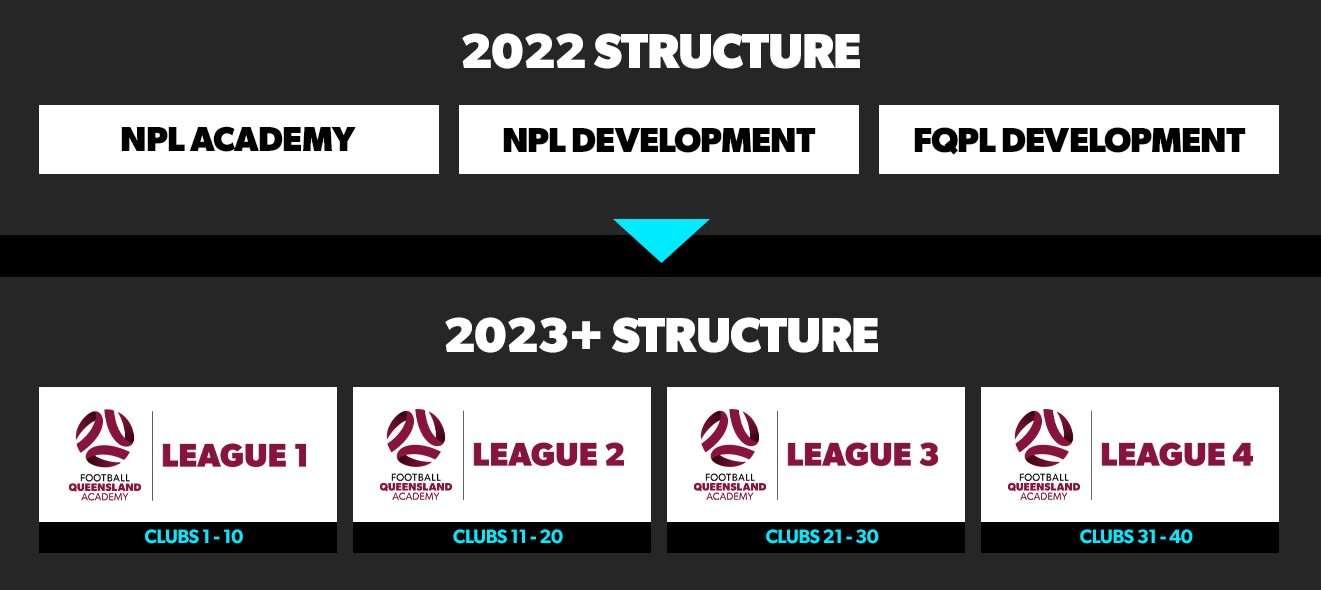
Across the FQ Academy Boys U10, U11 and U12 there will be no material amendments to the competitions and league environment currently occurring and being a mixture of formats, events and carnivals.
In the FQ Academy Girls, the age cohorts will now have to realign with the U13 format change by shifting to:
- U11 (inclusive of U10)
- U13, U15 and U17
All FQ Academy Girls licensed clubs are required to field all teams to comply with their participation agreements under the 2023 licence. The U13, U15 and U17 competitions will become FQ Academy Leagues 1 and 2 and will be determined based on the FQ Club Assessment process and the 2022 results in the exact same fashion as the boys’ leagues.

For U9 players (girls and boys) within the FQ Academy system, there will still be a requirement to access the same services and development opportunities within the same FQ Academy club framework as any older age groups at FQ Academy licensed clubs, however their weekly competition environment will be more accessible for young families, with competitions organised more hub or regionally based in an unchanged 7v7 format.

